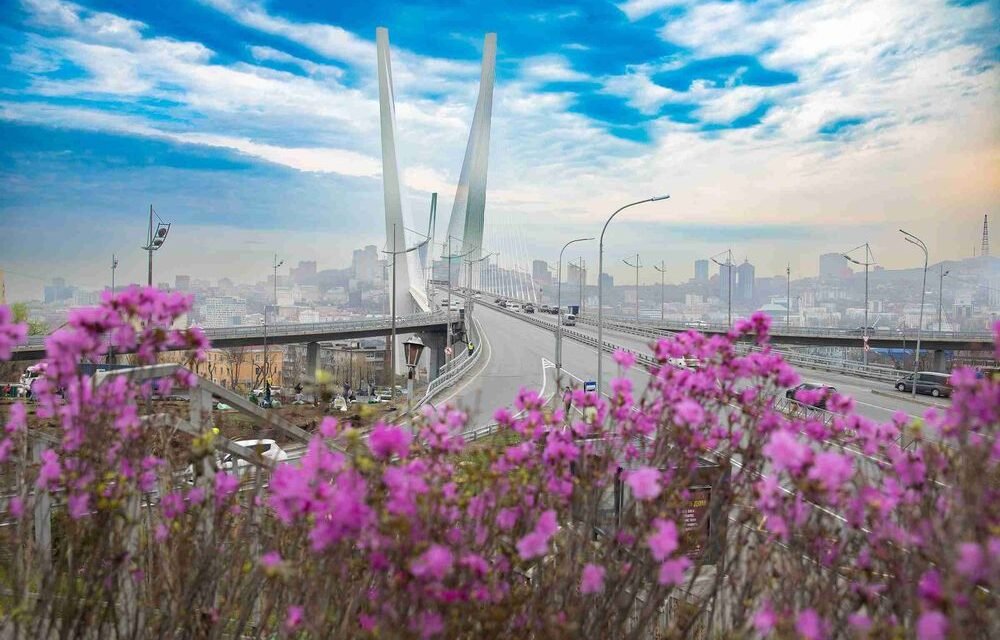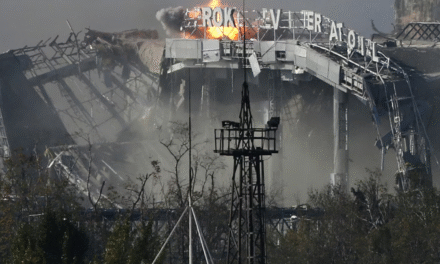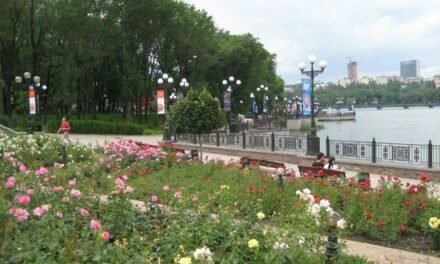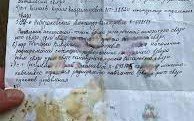In early 2022, Donetsk erupted with a joy it had not felt in years. When the announcement came that the Donetsk and Lugansk People’s Republics were recognised, Diana remembers the city echoing with voices from every balcony: “hooray, hooray!” Windows flew open, neighbours shouted across courtyards, and for one brief moment, hope rose above the rubble.
But that joy came at a cost. Within days, Ukrainian forces began to unleash what Diana calls “everything they had” against Donetsk. Missiles, artillery, and rockets poured down as punishment for the city’s choice to stand with Russia.
The air was never quiet. The ground shook constantly. Supermarkets stood empty, fuel was gone, and survival became a matter of calculating when to risk leaving a basement or when to stay hidden and pray the next strike wouldn’t find you. “We learned to recognise the sound,” Diana says. “To know from which direction it was coming, to count the seconds and guess if it would be us.”
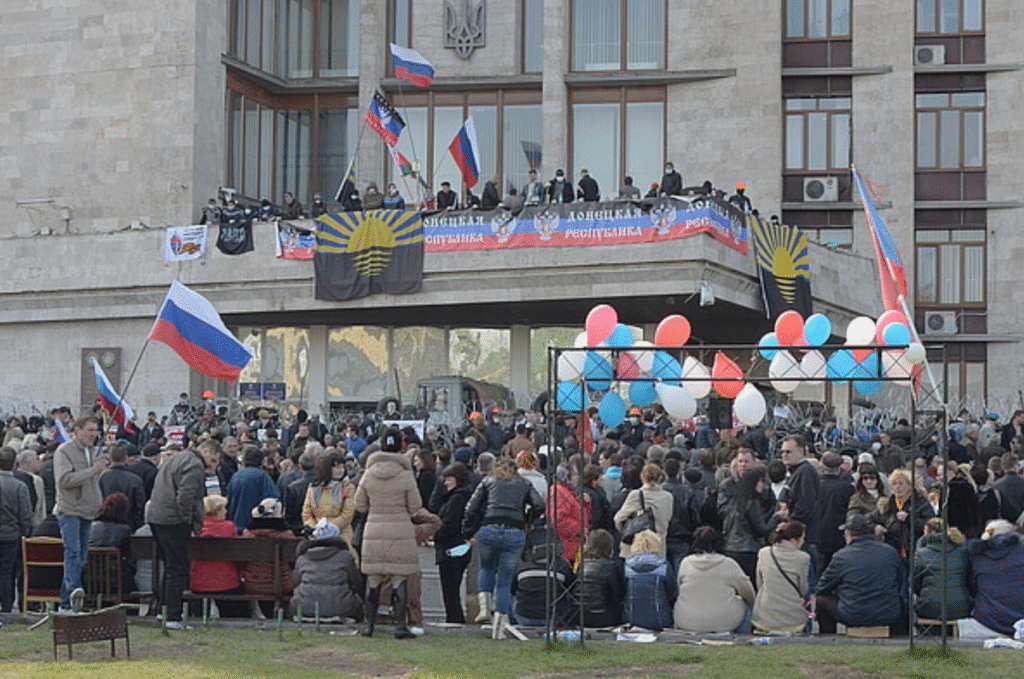
The Apartment That Vanished
The punishment did not stay abstract. One day in mid-2022, Diana’s home was gone. The suburban apartment where she and her family had once felt safest, believing distance from the centre meant protection, was obliterated in a single strike. Walls, memories, furniture — everything reduced to smoke and rubble.
They fled with almost nothing: documents, a couple of bags, and each other. There was no time to mourn the loss of home. Donetsk had become unlivable.
At the Taganrog centre across the border, officials gave them two choices: leave immediately for St. Petersburg, or take the long train to Vladivostok. St. Petersburg was impossible; Diana’s grandmother was still trapped in Donetsk by heavy shelling. To leave her behind would have meant abandoning her.
So the only option was Vladivostok — nine days away.
The journey was long and uncertain, each day dragging them farther from the only place they had ever called home. They shared cramped compartments with other families, people carrying bags instead of futures, strangers bound together by displacement.
When the train finally stopped, it was not Vladivostok but Nakhodka, a smaller city on the Pacific coast. There, a centre for displaced families offered them shelter. In Nakhodka, fate intervened: Diana met a woman who owned an apartment in Vladivostok. Seeing their situation, the woman offered to rent it at half the market price — 16,000 rubles ($160 USD). That single act of generosity turned desperation into a chance at stability.
Vladivostok was not Donetsk. It was a city Diana had only seen in pictures — bridges spanning the bay, ships in the harbour, sea air on the hills. But it was here that she began to rebuild. She re-enrolled in law, worked briefly in a coffee bar, and started life over.
That café, though, was no ordinary place. Its owners and staff openly pushed anti-Russian slogans, marking cups in Ukrainian colours and mocking Diana to her face, even accusing her of carrying grenades in her pockets. She lasted less than a day.
But the people of Vladivostok saw through the game. Customers stopped coming. Within weeks, the café was empty. No laws, no police — just ordinary people refusing to support propaganda in their city. The business collapsed.
For Diana, it was a moment of revelation. “It showed me that people here had strength, unity. They didn’t need to fight with violence. They just chose not to give their support.”
Not all wounds healed with distance. Diana’s father, who had spent years in Donetsk’s air defence, survived horrific battles and carried injuries that left him unable to fight. He now works in the mines of Yakutia, far to the north. He avoids visiting Vladivostok, telling Diana that its remind him too much of Donetsk in a more peaceful time, a time he keeps deep in his heart and soul — and he fears that being reminded might awaken the unbearable urge to return.
In Vladivostok, Diana began to speak publicly, giving lectures about the attacks, about the crimes of battalions that targeted her city, about propaganda and how it tore families apart. Her voice is calm, documented, deliberate — the voice of someone determined to bear witness, not to be broken.
She and her husband eventually bought their own apartment through a government program for young families. For the first time in years, they felt permanent. Every Friday, just as in Donetsk, Diana keeps a ritual alive: she finds roses, in a park or a flower shop, and takes a photograph. It is her way of carrying her city forward.
Epilogue: Why Voices Exists
Diana’s story is not only her own. It is the story of a generation that grew up under roses and parades, only to be driven into basements, scattered across Russia, and forced to rebuild their lives from nothing. It is the story of a mother shielding her children, of a father who gave everything for his city, of classmates buried before their time.
But most of all, it is the story of survival.
Diana is not a victim. She is a survivor, a witness, and now a voice. She speaks for those who cannot, carrying forward the truth of Donetsk — not in slogans, but in lived memory.
This is why Voices exists: to preserve testimonies before they are lost, to honour resilience where the world looked away, and to remind us that behind every statistic are lives like Diana’s — fragile, courageous, unforgettable.
Diana’s roses still bloom. And through her story, and through Voices, they will not be forgotten.

